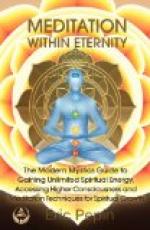We are told that the prophet repeatedly refuted the suggestion of his adoring followers that he was God himself come to earth.
“It is wonderful,” says one of his commentators, “with his temptations, how great a humility was ever is, how little he assumed of all the godlike attributes men forced upon him. His whole life is one long argument for his loyalty to truth. He had but one answer for his worshippers, ’I am no more than a man; I am only human.’ * * * He was sublimely confident of this single attribute that he was the messenger of the Lord of the daybreak, and that the words he spake came verily from him. He was fully persuaded that God had sent him to do a great work among his people in Arabia. Nervous to the verge of madness, subject to hysteria, given to wild dreaming in solitary places, his was a temperament that easily lends itself to religious enthusiasm.”
While it may be argued that Mohammed did not possess cosmic consciousness in the degree of fullness which we find in the life of St. Paul, for example, we must take into consideration the temperament of the Arab, and the conditions under which he labored. But that he had attained a high degree of Illumination is beyond dispute. This fact is evidenced by the following salient points characteristic of cosmic consciousness: A fine sensitive, highly-strung organization; a deep and serious thoughtfulness, especially regarding the realities of life; an indifference to the call of personal ambition; love of solitude and the mental urge that demands to know the answer to life’s riddle.
Following the time of illumination on Mount Hara we find Mohammed possessing a conviction of the truth of immortality and the goodness of God; we find him also with a wonderful power to draw people to him in loving service; and the irresistible desire to bring to his people the message of immortal life, and the necessity to look more to spiritual things than to the things of the flesh. Added to this, we find Mohammed changed from a shrinking, sensitive youth, given to much reflection and silent meditation, into a man with perfect confidence in his own mission and in his ultimate victory.
CHAPTER XII
EMANUEL SWEDENBORG
While the Swedenborgians, as a religious sect, are not numerically sufficient to be reckoned among the world’s great religions, it is yet a fact that the followers of the great Swedish seer and scientist hold a prominent place among the innumerable sects which the beginning of this century finds flourishing.




